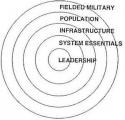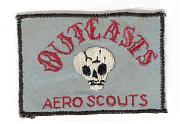Where I'm going with questions about the (hypothetical) Iranian response is this: they're going to have one. Right now the assumption is that nothing can defeat our conventional assault. In the sense that they can't deny our soldiers the use of territory or maintain a body of troops with the capacity to conduct maneuver warfare that's absolutely right. In the sense that maneuver warfare will get us what we want, I think it's absolutely wrong.
Our problem isn't with the Iranian Army (which would be the target of maneuver war). We could certainly deploy engineers to destroy centrifuges, reactors and other equipment - when we can locate it.
Given the operational limitations your plan puts on our forces, mainly that the mission has to be quick, we can't do some other things.
1) We can't surprise them. A fast, lightning operation that can defeat the Iranian army and accomplish our objectives would call for a massive ground force. That takes a long, long time to deploy. Many months. They'll certainly see this coming - and make a variety of plans to deal with it. You obviously haven't given any real thought as to the specifics of those plans - a few minutes of concentrated effort on your part would reveal a lot of ugly things that they could do to harm our interests and kill our troops.
2) We can't target named individuals. History suggests this: Pancho Villa, Fidel Castro, Gen. Aidid, Osama bin Laden, Zarqawi, etc. The list of guys we've caught is also instructive: Che Guevara, Pablo Escobar, Saddam Hussein. Each one of these individuals took months or years of effort to catch - even when our best troops were involved with no political constraints on their search methods. Take it as given that we haven't particularly improved in this regard.
3) We can't completely abrogate the laws of land warfare. In a media saturated environment, where the US military has taken enough PR hits from abu Ghraib, Fallujah, GITMO and Haditha we're going to have to remain somewhat sensitive in our targeting.
Given those limitations, even the most massive military invasion force will only accomplish so much for us. In fact, I think the accomplishment is worth so little that it's not worth doing.







Bookmarks